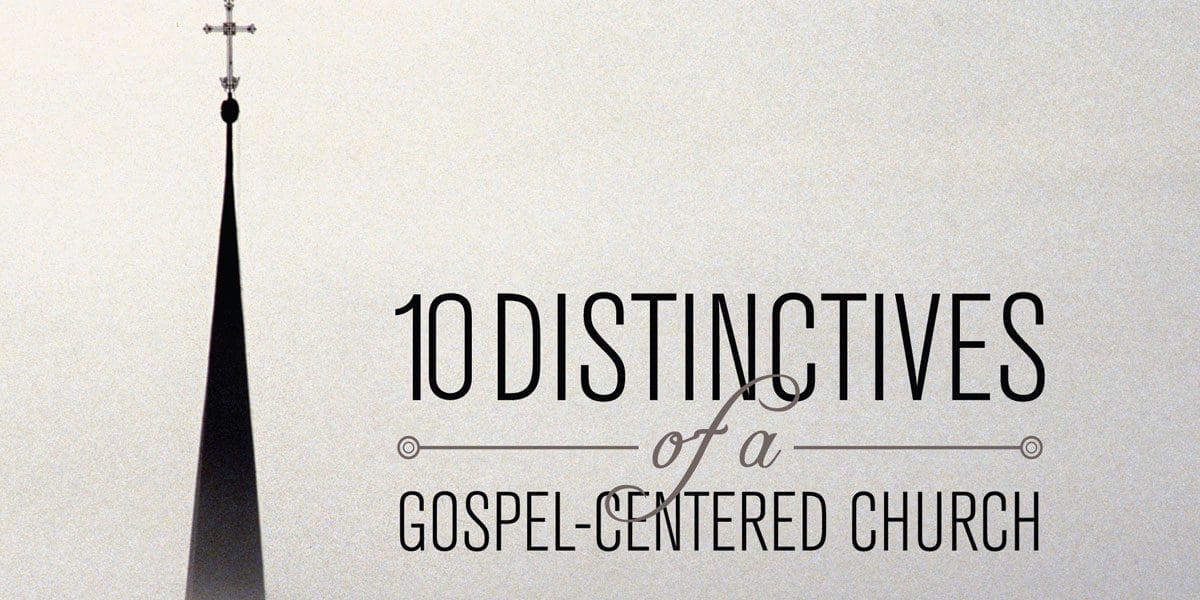Beyond all question, the mystery of godliness is great: He appeared in a body, was vindicated by the Spirit, was seen by angels, was preached among the nations, was believed on in the world, was taken up in glory. 1 Timothy 3:16 (NIV)
Some people say that this was part of an early Christian hymn. Clearly it is a celebration of Jesus Christ for us to enjoy. The song has 6 great statements about our Lord Jesus Christ. It begins with the birth of Jesus (He appeared in a body) and ends with the ascension of Jesus (He was taken up in glory).
The statements are not in chronological order. Christ was preached among the nations and believed on in the world after the ascension not before. Sometimes poetry in the ancient world was designed so that the first and last lines are parallel, and the second and the second to last lines go together, and so on, working towards the middle:
- He appeared in a body
- [He] was vindicated by the Spirit
- [He] was seen by angels
- [He] was preached among the nations
- [He] was believed on in the world
- [He] was taken up in glory
Three Affirmations of the Glory of Christ
1. The glory of Christ in His incarnation
“He appeared in a body… was taken up in glory.” 1 Timothy 3:16
He appeared in a body
Jesus Christ appeared in a body. He knows your life in this world. He was a carpenter and would have had calluses on his hands. He worked long days and knew what it was, like you do, to be exhausted at night. He knew pain in the body, like many of us do. He also knew great joy, savored friendship, and He rejoiced in these wonderful gifts as you do.
He knew the joy of accomplishment, and he knew the pain and sorrow of disappointment when, after having taught His friends for so long, they still had so little understanding of the truth that was in Him. He lived your life in this world. He knows your suffering. He knows your rejoicing. And He knows it from the inside.
He was taken up in glory
This happened in the ascension. He carried our humanity into heaven. At the right hand of God the Father, who is invisible, stands the man, Christ Jesus. God in the flesh.
He came into the world, coming to us. Then He ascended back to heaven, from where the Son of God came. And He is there for us at the right hand of the Father. There is a man in heaven. There is someone representing you, someone who knows your life. He came here to us. And He has gone there for us
2. The glory of Christ in His exaltation
“He… was vindicated by the Spirit… believed on in the world.” 1 Timothy 3:16
He was vindicated by the Spirit
This happened at Christ’s baptism and transfiguration. But the supreme vindication of Jesus Christ is the resurrection. God’s seal was placed on Him. Through the Spirit, He was declared with power to be the Son of God by His resurrection from the dead (Romans 1:4).
He was believed on in the world
This triumphant affirmation of Jesus that is made from heaven is wonderfully echoed throughout the earth. He is vindicated by the Spirit and believed on in the world. God’s seal is upon Him and our faith is in Him. Christ is exalted by the Father in heaven and He is exalted on the earth by people from every nation who believe in Him.
3. The glory of Christ in His proclamation
“He was… seen by angels… preached among the nations.” 1 Timothy 3:16
Christ is the theme of the angels in heaven. In the book of Revelation we have a glimpse of how they never stop worshipping the Lamb: “Worthy is the Lamb who was slain” (Revelation 5:12). But Christ is also the theme of the church on earth. He is preached among the nations. Paul says “We proclaim Him!” (Colossians 1:28). That is our calling. It is the global mission of the church.
So what we have here is a marvelous celebration of Jesus Christ. He came to us and ascended for us. He was declared to be the Son of God by the Father through His resurrection and is worshipped as the Son of God by believers all over the world. He is the praise of the angels in heaven and the hope of the nations on earth.
Since this section is all about Jesus Christ, why do you think the Apostle Paul says “The mystery of godliness is great?” (v6). Why not say “The mystery of Christ is great?” The verse is about Jesus. But he begins this verse by saying, through the inspiration of the Holy Spirit “Great is the mystery of godliness.” Why?
Godliness (which is the God-centered life that a person in Jesus Christ pursues), is the central theme of chapter 4:
“Train yourself to be godly.” (v7)
“Physical training is of some value, but godliness has value for all things…” (v8)
Paul unpacks what godliness looks like when he says to Timothy:
“Set an example for the believers in speech, in life, in love, in faith and in purity.” (v12)
Chapter 3 is about the character of leaders, and who will get God’s global mission done. So the natural question in Chapter 4 is:
How Can I Live a Godly Life?
Beware of false paths to godliness
“The Spirit clearly says that in later times some will abandon the faith and follow deceiving spirits and things taught by demons” 1 Timothy 4:1
How do these demons lead people away from the faith? “Such teachings come through hypocritical liars, whose consciences have been seared as with a hot iron” (v2).
You can see why it is so important for Timothy to command certain people not to teach false doctrines. The work of demons is advanced through false teaching in the church! One of the ways Satan works is by bringing false teaching in the church to distract people from faith.
Paul gives a specific example: “They forbid people to marry and order them to abstain from certain foods” (v3). The secular life was all about one thing—the body! The early world was saturated with sex and food. Not much has changed! We talk about our unique generation, but actually the world never changes, we just added the Internet.
In a culture saturated with sex and food, you can see how some people would say “These things belong to the world. They don’t belong to us. Since there is so much sin bound up with sex and food, we must be against that. The way to a godly life is by abstention: Have nothing to do with marriage or with fine foods. Pursue the simplest lifestyle possible. And in denying pleasure you will become more godly.”
The Apostle Paul says “That is completely wrong!” It is a false path to godliness. That kind of teaching doesn’t come from heaven. Godliness by abstention simply doesn’t work. You can’t love God more by enjoying life less.
There are many people in the church who think that the only way to become more godly is by abstaining from more and more things. They associate godliness with unhappiness. If they catch themselves being happy they say “Something must be wrong!” But Paul says “That teaching doesn’t come from heaven. It comes from somewhere else.”
Godliness by abstention simply does not work. That’s the significance of the phrase “hypocritical liars” (v2). The “false teaching” doesn’t really promote godliness. Godliness by abstention only promotes self-righteousness and hypocrisy. At the end of the day, this teaching is a mask for an unchanged life, because there is no power to change.
Paul reminds us—God is the Creator: “Everything God created is good. Nothing is to be rejected—if it is received with thanksgiving!” (v4). Who was it that gave the gift of marriage? Remember, marriage was given even before the Fall, with all of the beauties and joys of sexual union. Who was it that gave the abundance of food in the earth—not simply sufficient, but for our enjoyment? These are the gifts of God.
John Stott helpfully quotes G. K. Chesterton:
“You say grace before meals, all right. But I say grace before the play and the opera, and grace before the concert and the pantomime, and grace before I open a book, and grace before sketching and painting, swimming, fencing, boxing, walking, playing, dancing; and grace before I dip the pen in the ink.” [i]
Do you see what he is saying? I celebrate all the good gifts of the Creator, and nothing is to be rejected if it is received with thanksgiving.
There are some Christians who feel guilty about pleasure. They feel that they have to apologize for enjoying themselves. If they catch themselves being happy, something must be wrong. Whatever that is, it certainly isn’t godliness and it didn’t come from heaven either.
You can’t love God more by loving life less. So how can you love God more? How can you grow in godliness? This is surely the significance of 1 Timothy 3:16, where Paul lifts up Jesus Christ and says “Great is the mystery of godliness.” What is the mystery of godliness? Answer: Jesus Christ!
Jesus Christ is the mystery of godliness
“Beyond all question, the mystery of godliness is great: He appeared in a body, was vindicated by the Spirit, was seen by angels, was preached among the nations, was believed on in the world, was taken up in glory.” 1 Timothy 3:16
Godliness, a God-centered life, is not a set of disciplines or a system, and it is certainly not a program. It is a person. The mystery of a fully God-centered life lies in the person of our Lord Jesus Christ who appeared in a body and was vindicated by the Spirit. The mystery of godliness is Jesus Christ.
Jesus Christ is godliness in the flesh. He has lived the God-centered life, and our hope of living a godly life is in Him. Jesus Christ is the object of our faith, and Jesus Christ is the source of our life.
Many people would say “Oh yes, I believe in the Lord Jesus Christ, but He feels distant from my struggles.” Being a Christian is more than believing in Jesus. It is the life of Jesus Christ in you by the Holy Spirit. This is perhaps the most important thing for us to grasp in the whole of the Christian life.
Paul speaks about “the mystery that has been kept hidden for ages and generations, but is now disclosed to the saints… Christ in you, the hope of glory” (Colossians 1:25, 27). Christ in you! He does not mean getting into heaven. He means the hope of the life that God promises, the hope of growing in that life.
Faith is more than believing Christ. Faith unites us with Christ so that we are united with Him in His death and in His resurrection. Faith receives Christ (John 1:13). Faith feeds on Christ (John 6:54). Christ is your life (Colossians 3:4) and “Your life is hidden with Christ in God” (Colossians 3:3).
Jesus gave us a wonderful illustration of this “I am the vine and you are the branches” (John 15:5). Do you see what this is? It’s life flowing from Christ to the members of His body. Godliness is in Him and it flows from Him. It grows in us as we grow in Him. That’s the hope of you living this life. Christ with you and Christ in you—the hope of glory.
Your hope of godliness is in Jesus Christ
“This is a trustworthy saying that deserves full acceptance (and for this we labor and strive), that we have put our hope in the living God, who is the Savior of all men, and especially of those who believe.” 1 Timothy 4:9-10
Paul begins like this when he wants to say something really important. What hope is there for me of a godly life? What hope is there for you of a godly life? How will Christian people become what God calls us to be? Everyone is looking for the answer to that question.
“We have put our hope in the living God who is the Savior…” (v10). Paul is thinking about sanctification here. How do we know that? He says “for this we labor and strive…” (v9). Do we labor and strive for justification? No. We rest wholly in Christ. Do we labor and strive in sanctification? Yes. We put on the whole armor of God and fight the good fight. We take our stand against the enemy and His schemes.
The Spirit of God living in you, weds these two things together: 1. We labor and strive, and 2. We put our hope in the living God who is our Savior. Many people are confused about how to live the Christian life. There are two misunderstandings of the Christian life that have caused much of this confusion.
a. The “hard labor” version
“We labor and strive…” 1 Timothy 4:9
That’s it! This version says that the Christian life is one great effort to try and live a godly life. Many people live here. But there is no power, no energy, and very little joy about them. These folks have the air of defeat about them. They feel that the Christian life is impossible and so they become discouraged.
b. The “no labor” version
“We have put our hope in the living God.” 1 Timothy 4:9
This version says “There is nothing we Christians can do. We have to let go and let God.” They become completely passive. They do not see what the Bible says about fighting against sin. They do not dress daily in the armor of God. They say there’s nothing we can do to grow in holiness, it’s all up to God. It sounds so spiritual, but actually it divorces what God has joined together.
c. The “gospel life” version
“For this we labor and strive… We have put our hope in the living God.” 1 Timothy 4:10
Gospel life is the active pursuit of godliness through the power and presence of Jesus Christ in you. I engage in this struggle. I fight this fight. I press on towards the prize with hope because Jesus Christ lives in me. That’s the mystery of godliness. “Christ in you, the hope of glory” (Colossians 1:28).
The Proper Application of Overwhelming Force
I’ve read to you before the words of Winston Churchill written on the most famous night of December 7th, 1941. Churchill knew that Britain had no hope of winning the Second World War. His one great hope lay in the might and power of America:
“No American will think it wrong of me if I proclaim that to have the United States at our side was to me the greatest joy… We had won after all! Yes, after Dunkirk; after the fall of France… after seventeen months of lonely fighting and nineteen months of my responsibility in dire distress. We had won the war.”
“How long the war would last or in what fashion it would end no man could tell, nor did I at this moment care… Many disasters, immeasurable cost and tribulation lay ahead, but there was no doubt about the end. All the rest was merely the proper application of overwhelming force.”[ii]
In other words, Churchill was saying “I have been struggling alone for 19 months. I was taking a beating. But a mighty force has joined me today and the outcome is certain.”
There’s a world of a difference between Winston Churchill in December 1940 and December 1941. In December 1940 he was laboring and striving. He had a friend with mighty power, but the friend was far away and the friend was not involved in Winston’s battle.
That’s how it is for some of us. You believe in Christ. You know He has mighty power. But He is a friend far away. You feel defeated. You feel that you are fighting alone. You lose hope.
You need to hear the gospel. Jesus Christ is not saying to you “I will be your powerful friend, but you need to fight your own battles.” He is saying “I will engage in this fight with you. I will stand under this burden with you. I will be your Savior!”
In December 1941 Churchill has hope. A great and mighty power has come to his aid. So what does he do? Churchill doesn’t say “The Americans are coming, so we don’t need to fight this war any more: Let go and let America…” No, he says “I will engage in this fight in an entirely different way because I am in an entirely different position.” Whatever defeats and setbacks he may experience, the outcome is certain because the mighty power is for him and with him.
[i] John Stott, The Message of 1 Timothy and Titus, p.115
[ii] Winston Churchill, The Second World War, Vol. 3, 476ff
[elementor-template id=”128476″]





